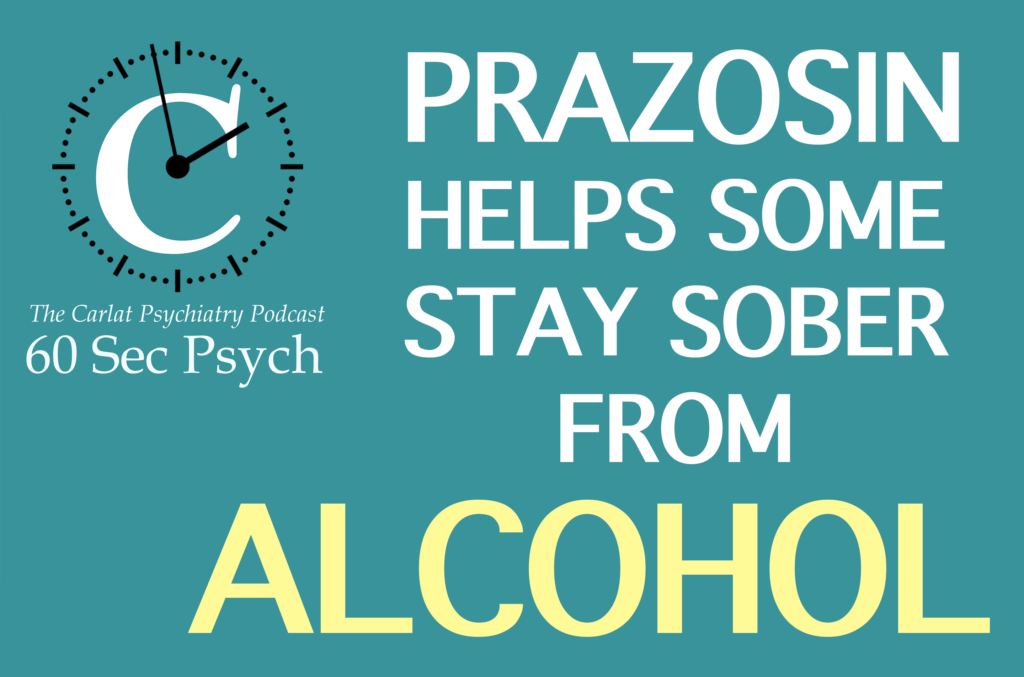Prazosin Helps Some Stay Sober from Alcohol [60 Sec Psych]
Podcast, Volume , Number ,
https://www.thecarlatreport.com///
There are many reasons why people drink, and one of them is alcohol withdrawal. The withdrawal state causes anxiety, negative mood, and cravings, and these kinds of symptoms lead patients to turn to alcohol once more. Some treatments for alcohol use disorders – like gabapentin – work better in patients with high withdrawal symptoms – and this new study from Rajita Sinha and colleagues at Yale investigated whether that held true for prazosin as well. [Study Link]
Published On: 12/10/2020 Duration: 4 minutes, 9 seconds Transcript: There are many reasons why people drink, and one of them is alcohol withdrawal. The withdrawal state causes anxiety, negative mood, and cravings, and these kinds of symptoms lead patients to turn to alcohol once more. Some treatments for alcohol use disorders – like gabapentin – work better in patients with high withdrawal symptoms – and this new study from Rajita Sinha and colleagues at Yale investigated whether that held true for prazosin as well. Prazosin is a blood pressure medication that is often used to reduce nightmares and hyperarousal in PTSD. Prazosin has some studies in alcohol use disorders with a mix of positive and negative results, leaving open the possibility that it does work but only helps a small subgroup of patients. Perhaps those who have bad withdrawal after stopping alcohol. They started with 100 outpatients with alcohol use disorder but no other major psychopathology, and randomized them to placebo or prazosin. The target dose was 16 mg/day, titrated over 2 weeks. All patients also received behavioral therapy and small random rewards for staying in treatment. The result: After 3 months, prazosin worked, but only in those with high withdrawal symptoms. In that group, it worked across the board, reducing heavy drinking days, any drinking days, as well as anxiety, depression, and alcohol cravings. The numbers here were big – prazosin reduced drinking days by 74-86% in this group. But prazosin had no benefit in those with low withdrawal problems – specifically only two or fewer symptoms of alcohol withdrawal. So is prazosin just a good treatment for alcohol withdrawal? Like a non-addictive benzodiazepine? Not so fast. Surprisingly, prazosin had no direct effects on alcohol withdrawal symptoms or sleep. Also, if it was just treating withdrawal symptoms then its benefits would have clustered in the early phase of treatment when those symptoms were worse. But no… prazosin’s effects built up over the 3 months. What this means is that alcohol withdrawal is complex, with downstream effects that are broader then its well-known symptoms of insomnia and high-blood pressure. Prazosin effects cortico-striatal circuits that regulate stress, reward, and decision-making. Through those effects, it may make patients better able to manage the stress of withdrawal symptoms and keep their eyes focused on the long-term goal of sobriety. Got feedback? Take the podcast survey.




Leave A Comment
You must be logged in to post a comment.